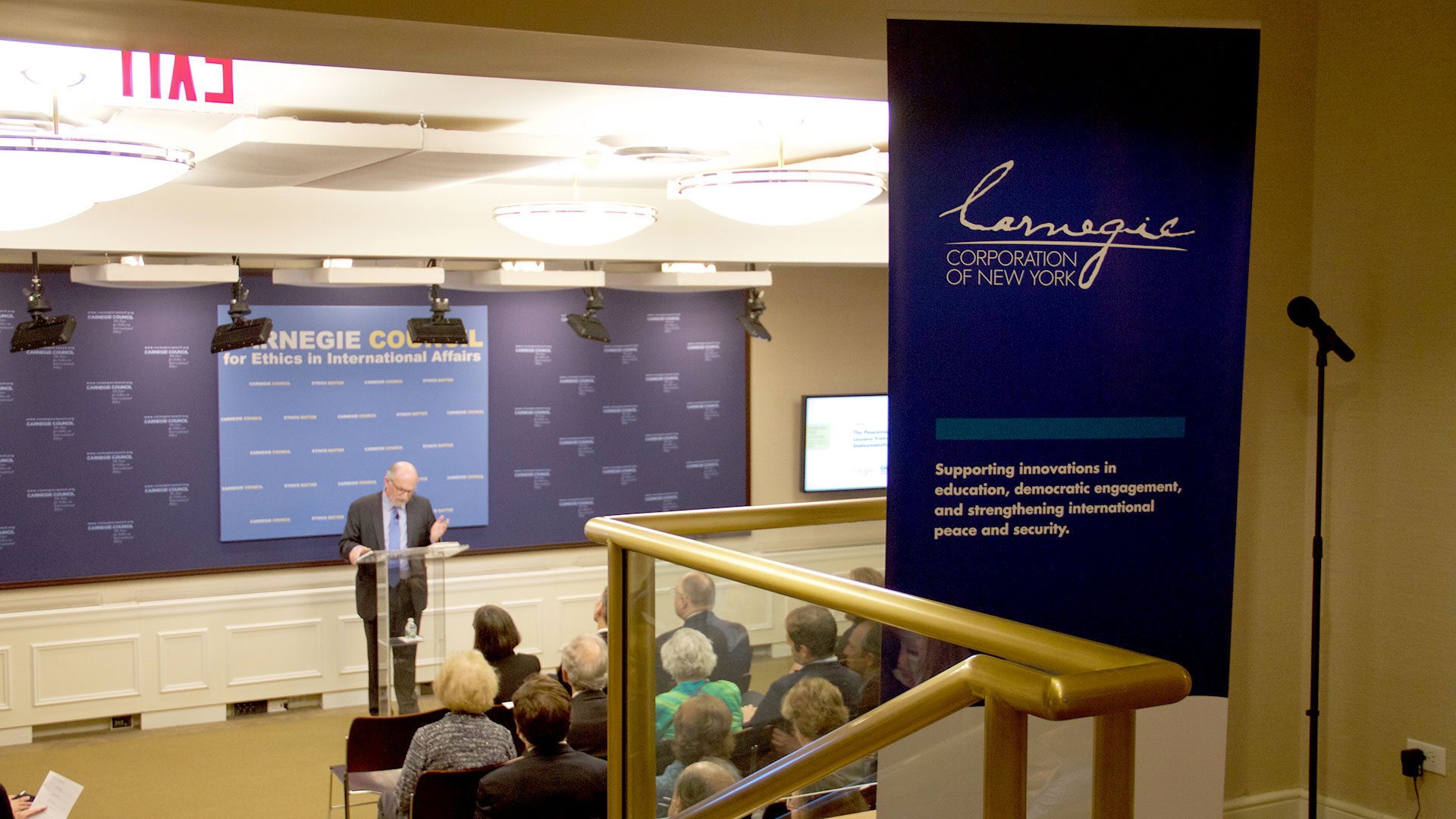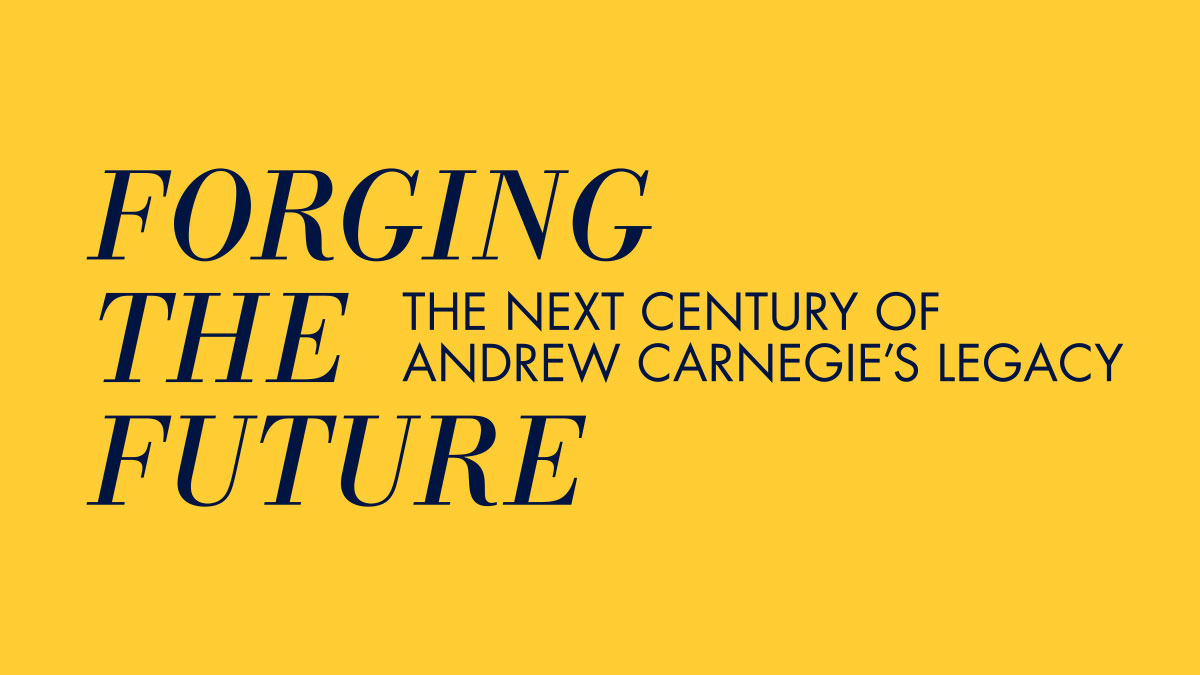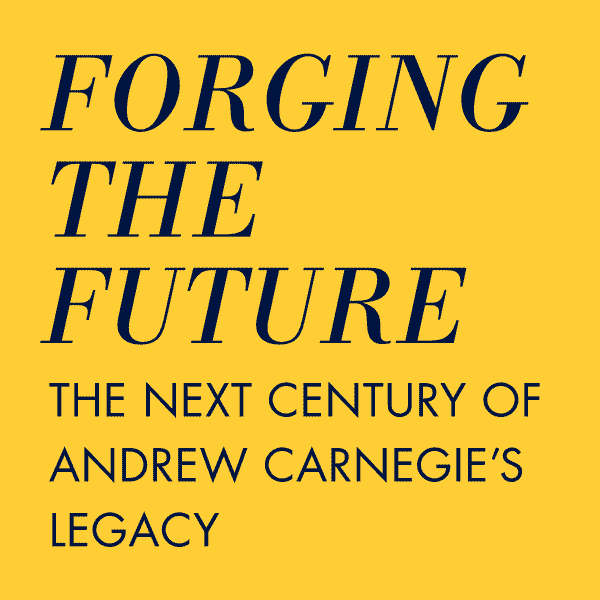FORGING THE FUTURE
Forging the Future
Andrew Carnegie’s Legacy, 100 Years Later and into the Next Century
It is not often that we have an opportunity to think in terms of 100 years. It’s a span well suited to remind us that while our lives are time-bound, our connections endure. As much as things change, they remain the same.
In the early hours of August 11, 1919, Andrew Carnegie passed away peacefully at his Shadowbrook estate in Lenox, Massachusetts, with his wife, Louise, at his side.
In the words of Carnegie Corporation president Vartan Gregorian, “The legacy of Andrew Carnegie celebrates the power of the individual, enabled and empowered to live freely and to think independently, as well as the power of an educated citizenry and a strong democracy. In this way, democracy, education, knowledge, freedom, and international peace are necessary ingredients to a healthy society.”
It is the Carnegie family of institutions, founded and inspired by Andrew Carnegie, to which we now turn — almost one hundred years on — to lead the path forward in celebration of his legacy. Over the course of the next year, these institutions will honor his life by addressing those issues Carnegie considered of paramount importance: international peace, the advancement of knowledge and understanding, and the strength of our democracy.
The Carnegie family of institutions — in New York City, Washington, D.C., Pittsburgh, and Europe — is sponsoring events over the next 18 months to answer key questions and commemorate Andrew Carnegie’s lasting achievements in peace, education, the arts, science, culture, and philanthropy.
The title of the event series, Forging the Future, encapsulates the most difficult and urgent challenges we face, and will culminate with the Carnegie Medal of Philanthropy awards ceremony in New York City in October 2019.

The first event in the series took place just last month in New York City as Carnegie Corporation of New York and Carnegie Council for Ethics in International Affairs hosted a lecture by Bruce W. Jentleson, a leading American foreign policy scholar, on his new book, The Peacemakers: Leadership Lessons from Twentieth-Century Statesmanship.
The Peacemakers covers a broad range of historical examples of leadership and peacebuilding, from Yitzhak Rabin’s efforts for Arab-Israeli peace to Dag Hammarskjöld’s effectiveness as Secretary-General of the United Nations and Mahatma Gandhi’s pioneering use of nonviolence as a political tool.
At a time in the world when peace seems elusive and conflict endemic, The Peacemakers makes a forceful and inspiring case for the continued relevance of statesmanship and diplomacy, providing practical guidance to 21st-century leaders seeking lessons from some of history’s most impactful negotiators, activists, and trailblazers.
The second Forging the Future event will be led by the Carnegie Hero Fund Commission and takes place on June 12 in Pittsburgh. Celebrating the actions of those who risk their lives while saving or attempting to save the lives of others, the Commission will honor its 10,000th hero at The Power of One: A Tribute to the Power of the Individual, an event cosponsored by Carnegie Mellon University, the Carnegie Library of Pittsburgh, and the Carnegie Museums of Pittsburgh.
Finally, this coming fall the Carnegie Foundation/Peace Palace will host Carnegie Peace-Building Conversations at the Peace Palace in The Hague (September 24–26). The Peace Palace, which houses the Permanent Court of Arbitration and the International Court of Justice, was built largely thanks to a substantial donation from Andrew Carnegie. The event will highlight Carnegie’s legacy as a peacemaker through a series of panel discussions on a number of topics, including ethics in peacebuilding, health and peace, artificial intelligence, security of natural resources, and financing peace.
After more than 100 years of doing real and permanent good in the world, the Andrew Carnegie family of institutions looks forward to the next century and considers how we must forge the future to sustain our founder’s vision in a new world.


